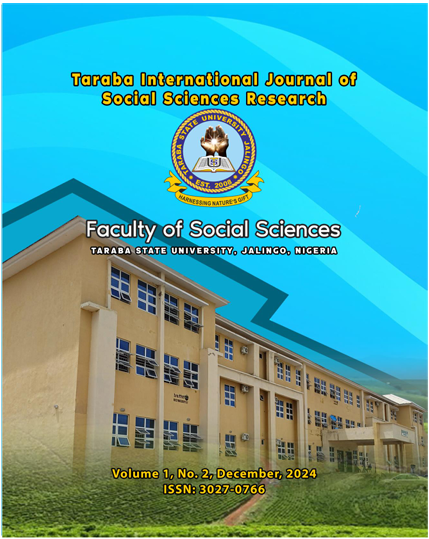ETHNIC CONFLICT AND THE INCREASE IN VIOLENT CRIMINAL ACTIVITIES: ANALYZING THE CORRELATION BETWEEN ETHNIC CONFLICTS AND THE RISING INCIDENCE OF VIOLENT CRIMES IN TARABA STATE
Keywords:
Criminal activities, Criminality, Ethnic conflicts, Pluralistic Conflict Theory, Small arms and light weapons (SALW), and Southern Taraba State.Abstract
Ethnic conflicts represent complex socio-political phenomena that profoundly impact societies, often leading to heightened levels of criminality. This article examined the intricate relationship between ethnic conflicts and criminal behavior, drawing on theoretical frameworks and empirical evidence to explore how ethnic tensions contribute to various forms of crime. Theoretical perspective of
Quinney's Pluralistic Conflict Theory illuminate mechanisms such as breakdowns in social order, power struggles, and the weaponization of ethnic identities that exacerbate criminal activities. Gender-sensitive analyses reveal nuanced perspectives on how ethnic conflicts influence criminality, highlighting differential impacts and vulnerabilities among diverse populations. Policy implications emphasize the importance of conflict prevention, security sector reform, and community engagement in mitigating the impact of ethnic conflicts on crime rates and fostering sustainable peacebuilding efforts. This article contributes to understanding the complexities of ethnic conflicts and offers insights for policymakers, practitioners, and researchers striving to address the challenges of
criminality in conflict-affected regions.

